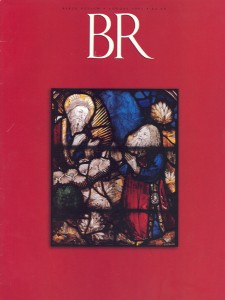
Try to imagine flying to a non-existent island on an airplane that has not yet been invented. Even if this impossible trip were to take place during the thirteenth month of the year, it would not be as fantastic as the tale, recently christened as scientific certainty by some New Testament scholars, concerning the “Lost Gospel” of Q.
The story of Q (short for the German Quelle, meaning “source”) is not exactly hot off the press. It began over a century and a half ago. At that time it was part of the two-source theory of gospel origins. In the wake of Enlightenment allegations that the Gospels were historically unreliable, some suggested that their origins were primarily literary. Matthew and Luke, the theory went, composed their Gospels not based on historical recollection but by using Mark and a hypothetical document called Q as dual sources.
The theory was not without its difficulties, and it is no wonder that many Anglo-Saxon scholars—B.F. Westcott (1825–1901) would be a good example1—as well as formidable German-speaking authorities like Theodor Zahn (1838–1933) and Adolf Schlatter (1852–1938) declined to embrace it. But it gained ascendancy in Germany, and to this day enjoys a virtual monopoly there and widespread support in many other countries.
Already a library member? Log in here.
Institution user? Log in with your IP address.

